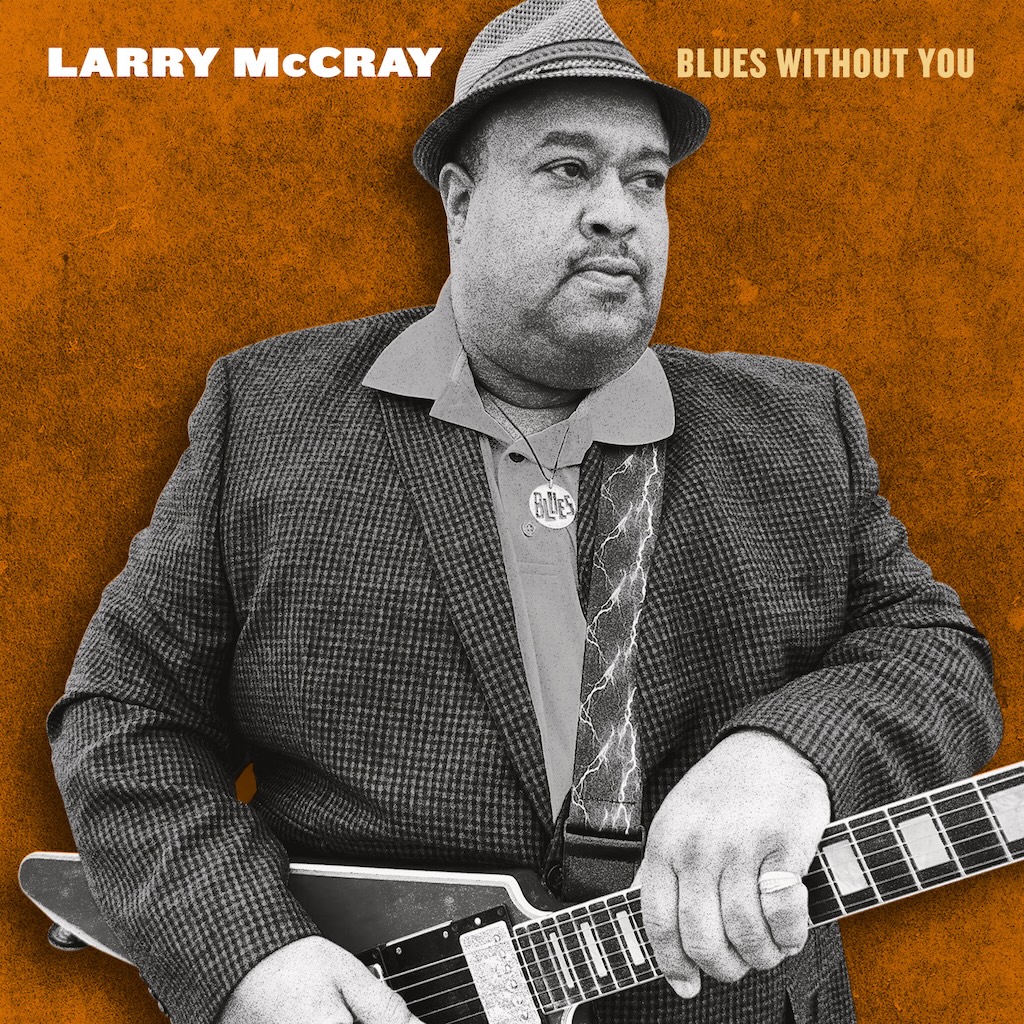
With nine albums under his belt, Larry McCray may be an established name on the blues circuit, but it has been fifteen long years since his last original material (2007’s eponymous album) and seven years since 2015’s The Gibson Sessions – practically an eternity in the music world. It was, however, a rough decade for Larry. Diagnosed with cancer and faced with a divorce from a wife who would go on to be sentenced to eighteen months for fraud, he found himself raising their son alone and dealing with complications from the cancer treatment that left him at a low ebb. In many ways it is, of course, perfect material for the blues, providing you have the inner strength to face it. For Larry, frustrated at the years of graft only to see his peers achieving the success denied to him, it paved the way for an album that will almost certainly redefine his career. Aided by Joe Bonamassa (surely one of the busiest men in blues) and Josh Smith, Larry has pulled together his myriad strengths and crafted a record that is as timeless as the blues itself.
Opening, like the great Blues Revue shows, with a scene setting, toe-tapping number entitled Arkansas, Larry and his band hit the ground running. It’s a bright, breezy opening with autobiographical lyrics and soulful backing vocals, all serving to provide a glittering backdrop for Larry’s awesome guitar skills and it is quite the entrance. The pace slows with the rickety piano and shuffling beat of Without Love It Doesn’t Matter, an old-school blues that feels like it should be played in a saloon bar, complete with whiskey-soaked wooden flooring and blue clouds of cigarette smoke hanging in the air. Up next, the funky, horn-soaked Good Die Young has its tongue in its cheek, while Larry adopts a Buddy Guy vibe, really digging into the song with a twinkle in his eye and a sparkle in his fingers. Joined by Gov’t Mule’s engaging frontman, Larry heads Down To The Bottom (feat. Warren Haynes) for a countrified blues that has a certain elegance, even in despair. A slow burner that builds to a thrilling, string-scored climax, it’s a lovely piece of music with plenty of depth in composition and playing. You can’t keep a good blues artist down, however, and the smooth sax and jazzy stylings of Breaking News has a rich Motown vibe that keeps the listener hooked. The first half concludes with the electrifying guitar work of Roadhouse Blues, a track led by Larry’s stinging leads and a powerful reminder of his remarkable skills.
Side two opens with an absolute beast – the piano-led, grinding blues of Drinkin’ Liquor And Chasin’ Women. And, just when you think it can’t get any better, along comes another of Joe’s friends in the form of Joanna Connor. Her presence adds further depth to a track that is a guitar player’s dream, while Joe uses his immense knowledge of tone to give the guitars a blistering, Freddie King vibe. The lights are turned down low on the poignant tribute, Blues Without You (For Paul). Written for Larry’s former manager, Paul Koch, there’s a gorgeous, Gary Moore vibe to the track, while John Barry esque strings are added sensitively to the arrangement, augmenting without swamping the emotions on display. Of course, no Bonamassa production would be complete without an appearance from the man himself and, on the slinky Mr Easy, Joe pops up to lend a hand. The track has a warm, funky vibe and, when Larry cues in Joe, you can’t help but smile at the way that the blues dispenses with egos and allows for musicians to gladly share the stage with their peers, supporting one another through bad times and good. With the guitar pyrotechnics of the preceding track still ringing in our ears, Larry leads us to the gospel tinged No More Crying. A rather beautiful piece, it sees strings once more deployed with grace before the funky Don’t Put Your Dreams To Bed struts onto stage, reminding the listener that it’s never too late to achieve your dreams, if you only persevere in the face of adversity – a powerful message given greater weight by the fact that it comes very much from Larry’s personal experience. The album ends with a simple statement of intent played as a straight acoustic track. Entitled I Play The Blues, it sees Larry end the album on an intimate note, leaving the listener feeling as if they’ve spent an hour directly in his company.
The blues has a long history of catharsis and the best exponents of the genre understand that. It is music born of pain, but it does not seek to share that pain with others so much as transmute it into something that can bring joy to an audience. There is no qualification as to what pain an artist may have experienced, but what is essential is the artist’s ability to remove their emotional armour and stand, vulnerable before the audience. On Blues Without You, Larry McCray does exactly that, taking the listener by the hand and walking them through his story. It is an experience that is rich and involving, and the production work of Joe Bonamassa and Josh Smith is typically excellent, adding depth to Larry’s varied compositions. Up there with another Bonamassa production – the equally excellent Crown from Eric Gales – Blues Without You is Larry McCray’s time to shine and shine he does. Don’t miss this wonderful and heartfelt record, it may just prove to be your blues album of the year. 9.5/10



I Poor journalism- Joe hasn’t produced one album without Josh Smith. Something the author should pay attention to if he is going to give credit on any album that is produced. You credit all the producers.
Hi Lenora, thank you for reading and for your comment. I am quite happy to own up to not having included Josh in the review – my bad, and one of the problems that comes with not having a physical copy in front of me. That said, I wonder why you feel the need to wade through a fairly lengthy and detailed review and then immediately go on the attack? A gentle correction would be fine, but to dismiss the whole review as “poor journalism” is somewhat reductive. Anyhow, I shall gladly correct the offending piece, but I would mildly like to suggest you adopt a more constructive approach to your criticism – it’s not actually necessary to be rude to get what you want… Phil